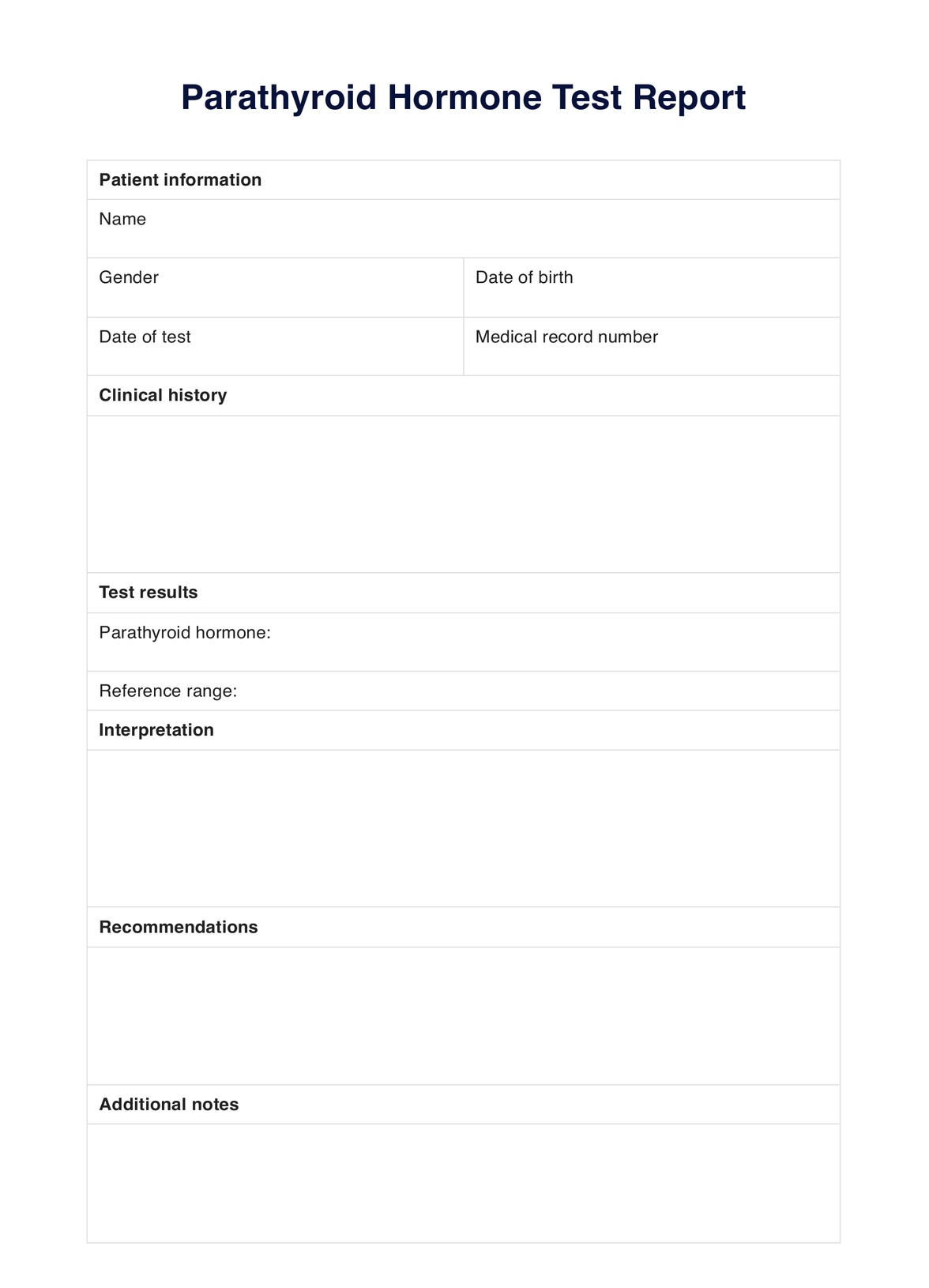Endocrinologists, nephrologists, and other healthcare providers often order a Parathyroid Hormone Test to evaluate calcium metabolism and related conditions.

Download a free Parathyroid Hormone Test Report template and easily document your patient's results. Get the PDF template and example now.
Endocrinologists, nephrologists, and other healthcare providers often order a Parathyroid Hormone Test to evaluate calcium metabolism and related conditions.
Parathyroid Hormone Tests are used to assess calcium metabolism and bone health. They may be ordered as part of a routine health check to investigate symptoms like muscle weakness or bone pain or to monitor the effectiveness of treatments for conditions like hyperparathyroidism or hyperparathyroidism.
The test typically takes a few minutes and involves drawing a blood sample. The results can take a few hours or days, depending on the laboratory used.
EHR and practice management software
*No credit card required
Free
$0/usd
Unlimited clients
Telehealth
1GB of storage
Client portal text
Automated billing and online payments